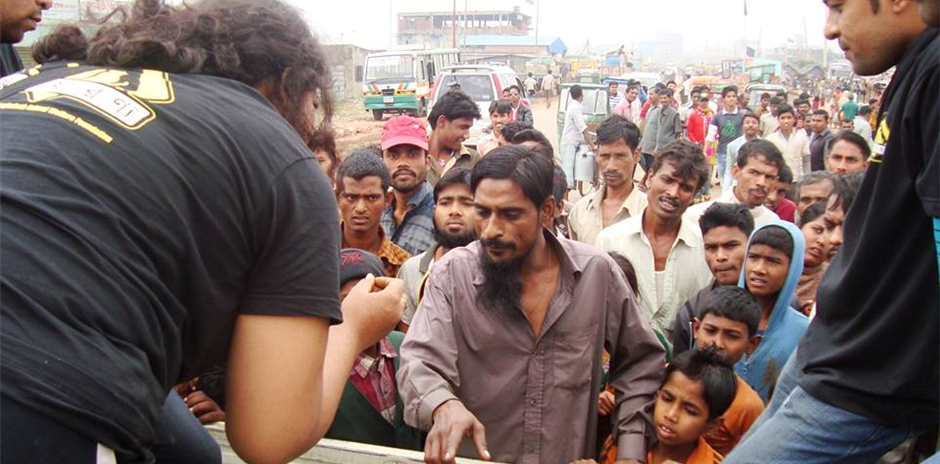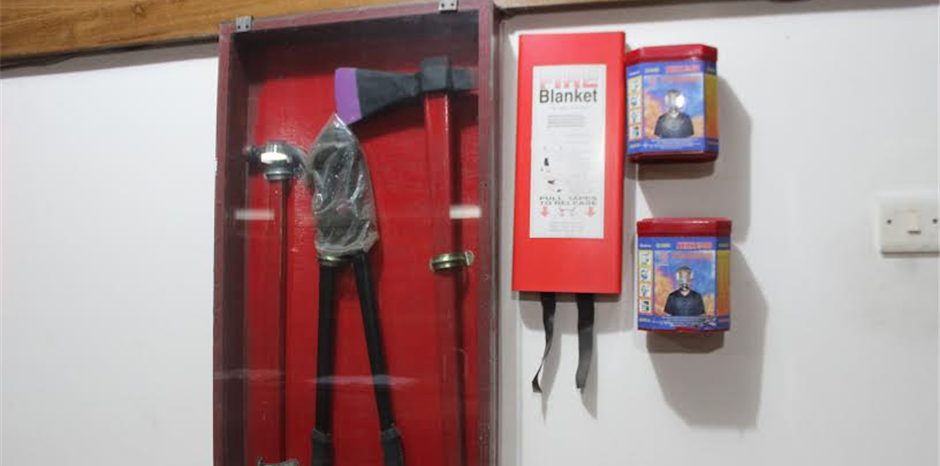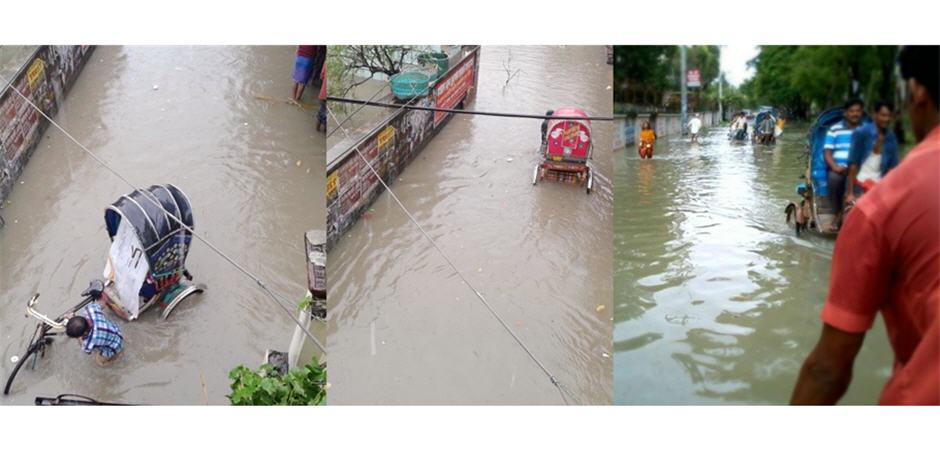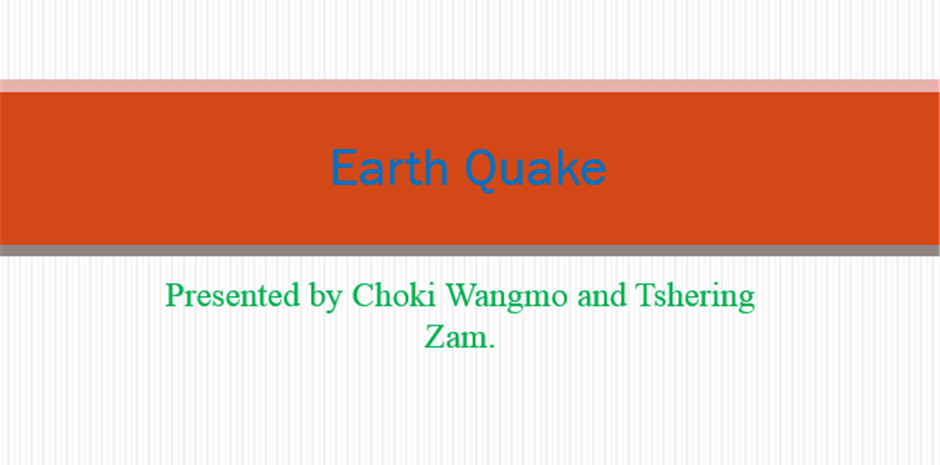Preparing Ourselves, Preparing Our Nation!
Chittagong, Bangladesh
The coastal areas of Bangladesh are always in danger of being affected by cyclones, storm surges and flood.
Khulna, one of the many coastal regions was inflicted with two major cyclones named Cyclone SIDR and Cyclone AILA in the year 2007 and 2009 respectively.
These cyclones not only caused catastrophic damages e.g. death, ruins, destructions but also the prolonged aftermaths of the disasters that is flood and water logging, threatened health sectors by increasing the risk of spreading waterborne diseases.
Due to lack of preparedness and developments the destructions were far worse than expected. The people of this disaster prone areas need to be aware and stay prepared, especially the health centers.
Inadequacy of awareness and preparedness in emergencies and health care managements were observed in the past catastrophes. The population of Bangladesh is immensely high. But there are not enough cyclone shelters and health centers to suffice the massive population. Moreover, there are insufficient health professionals, volunteers and humanitarian assistance during the time of emergencies, which make environment even more chaotic. There is scarcity of food, clean water, medical supplies etc. due to ill-managements of unprepared authorities which results in malnutrition and outbreak of many diseases.
Furthermore, if not in the cities but in villages, hospitals or health care centers are usually far away and this distance makes it difficult to get victims to hospital on time. Most of these healthcare centers in villages are one storied buildings which usually get flooded with water making it unhygienic and incapable of providing services to patients. These show how unfit we are till now even after being the most vulnerable region for natural disasters.
The number of health problems due to disaster is very high. To minimize the deadly consequences, the governmental and non-governmental organizations should take initiatives to strengthen and prepare the health sectors which plays vital role in the emergency situations. The first and foremost thing we need to do while preparing is to raise awareness within the mass population periodically. People in Bangladesh are so unaware that they do not even pay attention to the signals and forecast, but leave things to fate.
Major Afzal mentioned from his experience “The most difficult problem we face raising awareness amongst people, they do not take signals seriously and do not want to go to storm shelters” (Major Afzal).
That is why we need to make the people conscious about the situation and give them some basic knowledge about the dos and don'ts, safety, hygiene, nutrition and to keep composure. Knowledge of very basic first aid should be provided to individuals. These helps prevent small injuries becoming fatal.
Training the health professional and volunteers are another important aspect that we need to focus as conditions are not normal during emergencies. Among the general public who are interested to volunteer should be encouraged and trained effectively.
Health professions should also be trained for handling the situations smoothly. These training not only enhance their knowledge but make them adept and help them keep composure during tense environment. Being prepared from beforehand, helps to regulate and coordinate the work of health officials effectively. As soon as the signal is generated, health care official must divide duties for smooth operation otherwise there remains a huge havoc circumstance. Health care officials should be facilitated and kept well equipped to ensure effectiveness.
Hospitals should be built strong and well capacitated in higher region to prevent flooding and also to provide enough space for huge amount of victims. It needs to be well equipped with torches, lighting equipment, pumps, diagnosis devices, generators and fuels etc. Food, clean water, first aid kits, medications, saline, anti-bacterial soaps and toiletries should be abundant in supply to prevent water borne diseases and malnutrition (Major Afzal).
Due to prolonged flooding after cyclone, there is always outbreak of infectious diseases. Many cases of waterborne diseases such as diarrhea, dysentery, cholera and many skin diseases are reported.
It is reported that, “In Koyra [place in Khulna] alone, at least 10,000 people are attacked by diarrhea claimed locals. About 5,000 more attacked by diarrhea in Dacope and Paikgacha [places in Khulna] confirmed the local UP Chairman” (Roy et al 15). Flood water remains in a region for quite a longer period than usual as water recede slowly due to poor drainage system (25).
In the meantime, water gets highly contaminated because of improper sanitation and also because of the dead animals rotting in the water. The survey team observed that, “At least 95 percent of the affected and waterlogged areas are out of the safe sanitation coverage”.
Usage of contaminated water makes people ill and takes the form of epidemics. Health centers always face challenges because of sudden outbreak of epidemics. To avoid this condition, people should be made careful about cleanliness.
In the case of occurrence, immediate primary treatment should be provided. Major Afzal advised that gallons of water should be stored before cyclone, saline and soap should be supplied to prevent waterborne diseases (Major Afzal).
Children are more susceptible to this kind of diseases. Proper care should be taken and necessary baby food items and other infant materials like diapers should be kept in hand. That is why health centers need to be well prepared for these kinds of unpredicted events.
Preparing for a catastrophe leaves aftermaths less disastrous. No matter how well prepared the health centers and officials are, if we are not prepared individually all attempts go in vain.




